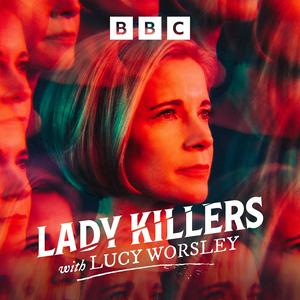In the final episode of the series, Lucy Worsley puts true crime itself on trial. Why are we so fascinated by stories of murder, violence, and scandal and was it ever thus? Is true crime guilty of sensationalism and stereotyping, or can it reveal something more profound about society, culture, and ourselves?
Lucy is joined by her all-female team of detectives, in-house historian Professor Rosalind Crone and guest detective Hannah Maguire, co-host of the hit podcast RedHanded. Together they examine the long history of true crime as entertainment, asking whether today’s podcasts, documentaries, and social media sleuthing are really so different from the pamphlets, broadsides, waxworks, and tabloid stories of the past.
The episode revisits three notorious cases. Martha Brown, executed in 1856 for killing her abusive husband, whose fate drew public sympathy and inspired Thomas Hardy’s Tess of the d’Urbervilles. Mary Pearcy, convicted in 1890 of the brutal murder of her lover’s wife and baby, whose trial and execution became a Victorian media sensation. And Elvira Barney, the glamorous socialite who in 1932 shot her lover and walked free, the tabloids feasting on every detail of her privileged world.
Through these stories, Lucy, Ros and Hannah explore how women have been represented in true crime narratives, and how gendered assumptions about violence and morality have shaped the way female offenders are portrayed. They also consider why audiences, past and present, are drawn to these tales, and whether our hunger for crime stories reflects fear, fascination, or the thrill of playing detective from the safety of our own homes.
Producer: Riham Moussa
Readers: Clare Corbett, Moya Angela, Jonathan Keeble and Ruth Sillers
Sound Design: Chris Maclean
Executive Producer: Kirsty Hunter
A StoryHunter production for BBC Radio 4.


